The variances in voting patterns between Mat North and South
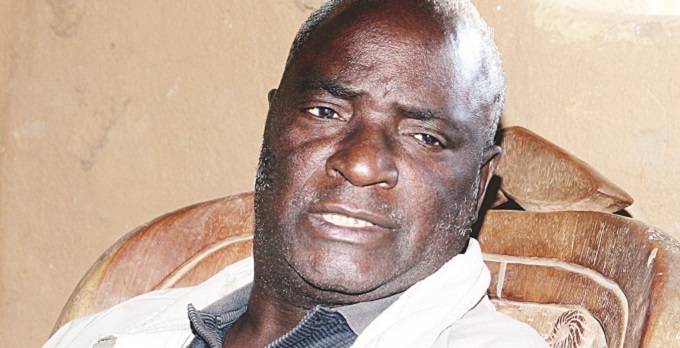
Gibson Mhaka, Senior Features Reporter
A CALF frisks in a field, while two heifers peer over a fence in Mazunga Village under Beitbridge District in Matabeleland South Province.
The hopeful mood of the village’s small-scale farmers is a stark contrast to the despair that has affected the area for years because of successive droughts.
But due to a State-sponsored livestock scheme, many small-scale farmers have been lifted out of poverty, and their bond with Zanu-PF has grown even stronger.
Mr Milton Ndou from Ndambe village in Beitbridge District who lost all his cattle in 2005 after they ate a poisonous plant, heaved a huge sigh of relief when his name was among the 151 people from the province’s seven districts who benefited from the 660 heifers handed over to farmers by President Emmerson Mnangagwa on 22 June under the Command Livestock programme.
It is not a secret that Mr Ndou and other peasant farmers from Matabeleland South Province-who benefited from President Mnangagwa’s Command Livestock programme-saw it important to vote for the ruling party during the July 30 harmonised elections.
“What people should know is that in Zimbabwe elections are not won on tribal and regional lines unlike in other African countries”, said Mr Ndou.” In Zimbabwe elections are divided between the urban and rural vote”.
“Since the bulk of the country’s population residing in the rural areas where there is also the highest number of registered voters what it means is that once you meet their needs you are guaranteed of a victory like what President Mnangagwa did when he empowered us through the Command Livestock programme”.
According to the Zimbabwe 2012 census statistics, 67 percent of the population in Zimbabwe lives in rural areas, and the ruling party has capitalised on this demographic advantage with total population of Matabeleland South and North being 683 893 and 749 017 respectively.
In Matabeleland South President Mnangagwa polled 107 008 votes as against 90 292 by Chamisa while in Matabeleland North Chamisa garnered 137 611 votes against President Mnangagwa who got 111 452 votes.
The lines were clearly drawn in the voting patterns throughout the country when the rural areas voted predominantly for Zanu-PF and President Mnangagwa and the urban folks opted to vote for the MDC-Alliance led by Chamisa.
Zanu-PF however, secured a two-thirds majority in Parliament with 163 seats against MDC Alliance’s 64 seats.
It was nearly full marks for Zanu-PF in Matabeleland South when the party won 12 out of the 13 constituencies in the province.
The result also confirmed Matabeleland South as a Zanu-PF stronghold following decades of consistently voting for the party.
But why has Matabeleland South constantly preserved its vote for Zanu-PF unlike its sister province, Matabeleland North where the ruling party won eight of the 13 constituencies?
Mr Bongani Ncube from Insiza North said Zanu-PF was popular in the constituency and the entire Matabeleland South because it was attending to bread-and-butter issues.
He said this was in stark contrast with fanciful claims which were made by Chamisa during the campaign period.
He said Chamisa’s ‘imaginative’ promises of bullet trains that travel at 600 km per hour, solving Zimbabwe’s liquidity crisis within two weeks of coming into office and building airports in every village, had nothing to do with the province where droughts and a lack of economic opportunities have resulted in widespread poverty and migration out of the province.
“Votes don’t just come without doing anything for the people,” said Mr Ncube.
“There is a lot that needs to be done to improve their livelihoods. Most of the rural population is made up of peasant farmers who lead simple lives and care more about farming inputs, clinics, schools and roads rather than bullet trains and spaghetti roads”.
He said MDC lost because the party failed to go deep into the rural areas and consult with the villagers about their needs since the true power of the people is derived from the majority in the rural areas.
“For decades we have been voting for Zanu-PF because MDC has not done anything for us. For example ahead of the watershed July 30 polls we did not even see them here campaigning. All we saw here were posters, so there was no other way except voting Zanu-PF. Their (Zanu-PF) candidates did their best in improving people’s livelihoods.
For example Mr Farai Taruvinga who is now MP for Insiza North has done so much development in Insiza District.
“He constructed a multi-million dollar upmarket business complex which is expected to uplift economic activity in the district (Insiza) and the rest of Matabeleland South Province. The province is also endowed with vast mineral deposits such as gold where some communities have also benefited through the Community Share Ownership Schemes (CSOS),” added Mr Ncube.
According to Mr Ncube MDC was losing in Matabeleland South because of its stance of banking on popular anger rather than on its mobilisation prowess.
However, political analyst Methuseli Moyo has a different take on the ruling party’s popularity in the province.
He said Matabeleland South preserved its vote for Zanu-PF because of the high number of war veterans in the province who are affiliated to the ruling party.
“What people should know is that Matabeleland South was the gateway via Botswana for young people to cross to Botswana and then Zambia to join the war of liberation. It was much easier for those in Matabeleland South therefore than those in Matabeleland North to cross into Botswana to join the war.
As a result, there is higher density of war veterans in Matabeleland South compared to Matabeleland North.
“Those hundreds of war veterans in Matabeleland South are affiliated to Zanu-PF and by extension, are commissars for the party, together with their families. This will always give the ruling party an upper hand in that province,” observed Moyo.
Turning to the reasons why the ruling party was not performing well in Matabeleland North, Moyo said the province has been largely neglected for the past decades mainly under ex-president Robert Mugabe.
“Matabeleland North has been largely neglected by the government. Just imagine there is no provincial hospital, 38 years after independence. The province has no roads, dams and boreholes and people and cattle walk long distances to get water.
“The two dams that were built by the colonial government were swept away by rains some 30 years ago and have never been repaired. There are also no tangible irrigation schemes in Matabeleland North as compared to Matabeleland South which benefited from Give-A-Dam campaign in the 90s.
In Matabeleland South there is also Zhove Valley and other irrigation schemes.
“Another issue is that Matabeleland North is the worst developed in the country, yet the province is endowed with vast natural resources. For example the province hosts Victoria Falls and Hwange National Park which undoubtedly anchor tourism industry in the country.
“The province has vast hard wood forests, but pupils sit on the floor under mud and thatch structures. No doubt this has made the ruling party especially during the tenure of ex-president Mugabe not to perform well in the province,” said Moyo.
Chief Pashu from Binga concurred with Moyo’s sentiments of sheer neglect of the province by the government saying it was disheartening that several investors especially in the mining sector have established mines in various parts of Matabeleland North but residents were not benefiting from the mining projects and were living in poverty.
He said it was wrong that mines register claims in different parts of Matabeleland North but they do not want to employ the locals from where they would be doing the mining.
“If people have interest in a given field, then they should go through the appropriate routes,” said Chief Pashu.
“They should express their interest to the local leaders who will also alert community members about investments they will be undertaking in the community.
“However, these organisations come with Government documents which allow them to cut our trees, and mine in our areas so there is nothing we can do to stop them although this is morally wrong,” he said.
According to Chief Pashu Binga has 66 samples of different minerals some of which are coal, iron ore, copper, tin and lithium which if properly utilised could enhance most villagers lives.
He said most of the investors mine several minerals but locals were not involved.
“Livelihoods of people in our communities should be improved if there are companies investing in our area, but investors come from cities like Harare and they bring everything including employees even for the most odd jobs that can be done by locals.
“Perhaps, what is most disturbing is that most of their employees are their relatives. Our communities will not develop if this continues to happen. We are surprised and disappointed about these companies that are under developing our areas by not recognising our people yet they sustain their furnaces with our minerals. That’s a colonial mentality that we leave behind. This might be one of the reasons people from the province do not vote for the ruling party for the past years,” said Chief Pashu.
He said he hoped that some of those complaints from people in Matabeleland North were going to be looked into when the Government rolls out devolution which he said was going to bring opportunities to the locals to decide what to do with their resources.
President Mnangagwa made it clear that devolution of power will be one of the priorities of his Government’s post-July 30 elections strategy.
That message which resonates well with Matabeleland region is enshrined under Chapter 14, Section 264 of the Constitution of Zimbabwe.
President Mnangagwa said his Government was prioritising devolution and decentralisation in the running of national affairs as a strategy to revitalise the economy and to improve the people’s standards of living.
“There is another decentralisation of power that has not been done called devolution which is separate from decentralisation. Devolution would require the surrendering of some amount of power to the provinces under the provincial councils in terms of our constitution to give provinces authority to manage their economies and then the provincial ministers’ role will change; it will be an economic role.
“They must ensure that the GDP of their provinces grows, they must look at the resources of their provinces and find best ways of exploiting these resources to benefit their respective provinces,” said President Mnangagwa.
This has given hope to youths like Mthulisi Ncube from Madojwa Village in Lupane, who finished secondary education in 2013 but struggles to find employment.
The young man, who has been taken care of by his parents, said Zanu-PF especially under Mr Mugabe was failing to garner more votes in Matabeleland North because it was not giving enough attention to and enough resources for the development of the province.
“The animosity between the ruling party and the people of Matabeleland North is based on the notion that Zanu-PF particularly under ex-President Mugabe was not giving enough attention to and enough resources for the development of Matabeleland North.
“Mr Mugabe neglected development in Matabeleland North which led most people from the province not to vote for the ruling party. A case in point is that of the Victoria Falls highway, a key national and international tourism corridor. Its present state is worrying despite the fact that it has two tollgates collecting cash from motorists.
“We are hoping that the coming in of President Mnangagwa will steer development in the province through devolution of power. The move is a sign that President Mnangagwa is keen on charting a new path in the country’s governance system and that will automatically cause people from the province to support him and the ruling party,” said Ncube.
However, Cde Stars Mathe who won the Nkayi South National Assembly seat under Zanu-PF ticket believes her victory was as a result of hard work.
“What made me win this time is that after losing during the harmonised elections in 2013, I didn’t move out of the constituency as I continued working with people. I had been on the ground working with the people since 2013 and that is why they voted for me. I also led a lot of development in the area through assisting the disadvantaged.
“Another reason is that I was born and bred in Nkayi and as you know people in the rural areas are still culturally conservative and greatly appreciate their leaders especially those attending funerals, living among them as well as respecting traditional leaders, they vested their trust in me. I promised them to continue doing this, uplifting their livelihoods and creating economic opportunities in the constituency,” said Cde Mathe, a 56-year-old mother of four who was also once a councillor for Ward 28 in Cowdray Park, Bulawayo.
MDC Matabeleland North provincial spokesperson Themba Mukombwe said the failure by Mr Mugabe to find a lasting solution to the 1980s’ civil disturbances in the region was giving their party an upper hand in the province.
However, under the new dispensation, the Government has shown commitment to engage people on civil disturbances and human rights violations through the enactment of the Peace and Reconciliation Act in January last year, which also created the National Peace and Reconciliation Commission (NPRC).
President Mnangagwa has said his Government is committed to bringing the Gukurahundi issue to finality and has assigned Vice President Kembo Mohadi to be in charge of the peace and reconciliation portfolio.
Former Minister of State for Matabeleland North Provincial Affairs, now the Minister of Home Affairs and Cultural Heritage Ambassador Cain Mathema, in a paper on development in Matabeleland, described as myth statements that the Government has not given enough attention to the development of Matabeleland region.
“To say that Government has not given enough attention to and enough resources for the development of Matabeleland can only be best described as a myth, that is, falsehoods that obviously (because they are falsehoods) have no evidence but sweeping statements of people who have gone mad with trying to keep Zimbabwe a neo-colony. This myth has been going on especially since the late 1990s,” Minister Mathema’s paper reads in part.
Academic Professor Sabelo Ndlovu-Gatsheni, in his research paper entitled The changing Politics of Matabeleland Since 1980 also posits that the politics that is emerging from Matabeleland region is that of protest to perceptions and realities of exclusion, marginalisation and domination.
*The grant for the investigation was supported by the Voluntary Media Council of Zimbabwe (VMCZ).

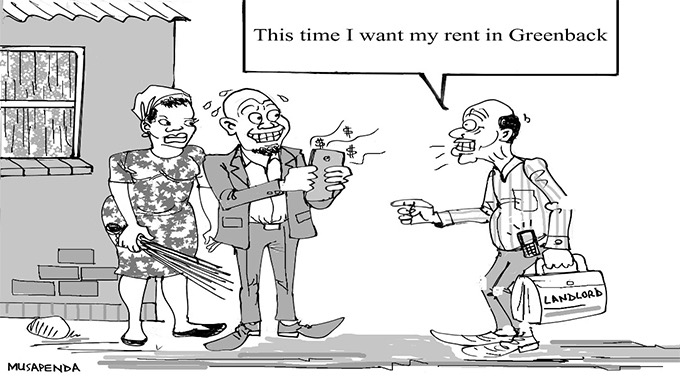
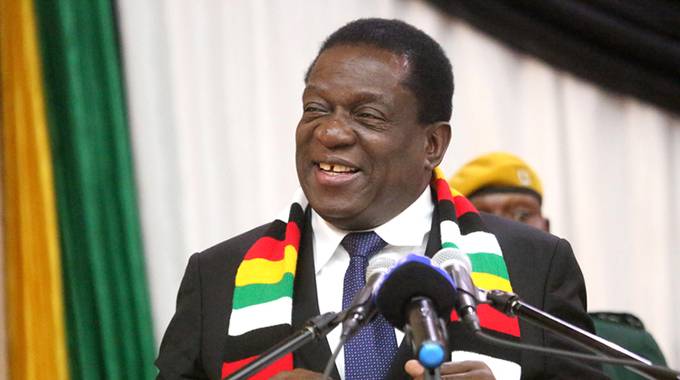
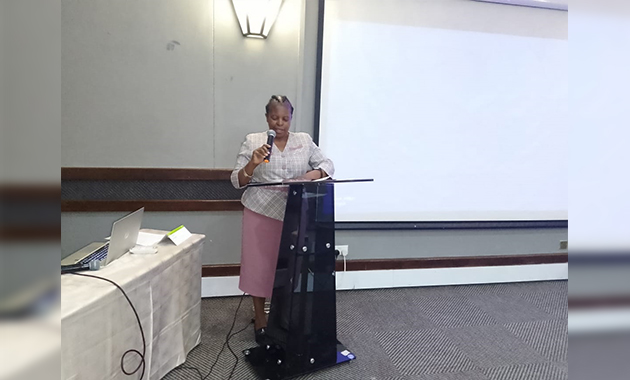

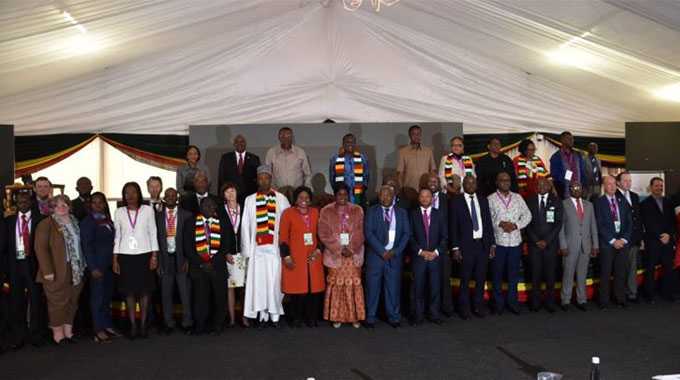






Comments